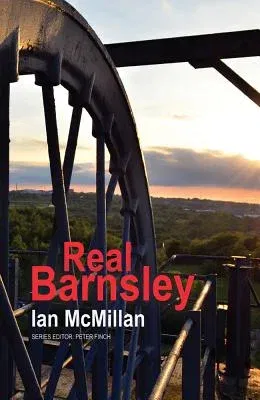Join poet and broadcaster Ian McMillan as he looks into the past of
his native Barnsley, exploring its history and recalling his own
experiences of this particular patch of South Yorkshire. Barnsley -
mentioned in the Domesday Book - developed incrementally into an
important commercial and cultural centre, home to cinemas, theatres,
civic life and Barnsley FC, McMillan's beloved Tykes. Appropriately, the
home of an ancient glass industry was also the site of Britain's first
bottlebank.
Real Barnsley also tours the surrounding villages and small towns so
important to local identity. Penistone, Hoyland Common, Wombwell,
Cawthorne, Royston, Carlton, Cudworth, Grimesthorpe and McMillan's own
Darfield are all on his itinerary. Some were mining villages, products
of the seventy collieries within a 15 mile radius of Barnsley (all now
closed). Others are rural market towns, on the edge of the Pennines. As
McMillan discovers the tide of industry has gone out but the heritage
tide has flowed, with the establishment of the Elsecar Heritage Centre
at an old ironworks, and 'The Maurice Dobson Museum and Heritage
Centre', at which the author volunteers. And there are always the moors,
to which workers have escaped from factories and pits, where the film
Kes was shot.
McMillan's Barnsley is nothing if not an eclectic mix, home to brass
bands and the Barnsley Chop but the Arctic Monkeys, Saxon and Kate
Rusby. It is also home to Michael Parkinson, Dicky Bird, sculptor Graham
Ibbeson, Lord Halifax, Ebenezer Elliott, poet, and the highwayman Swift
Nick. And plenty of colourful locals including McMillan himself: Real
Barnsley is his shared story.

